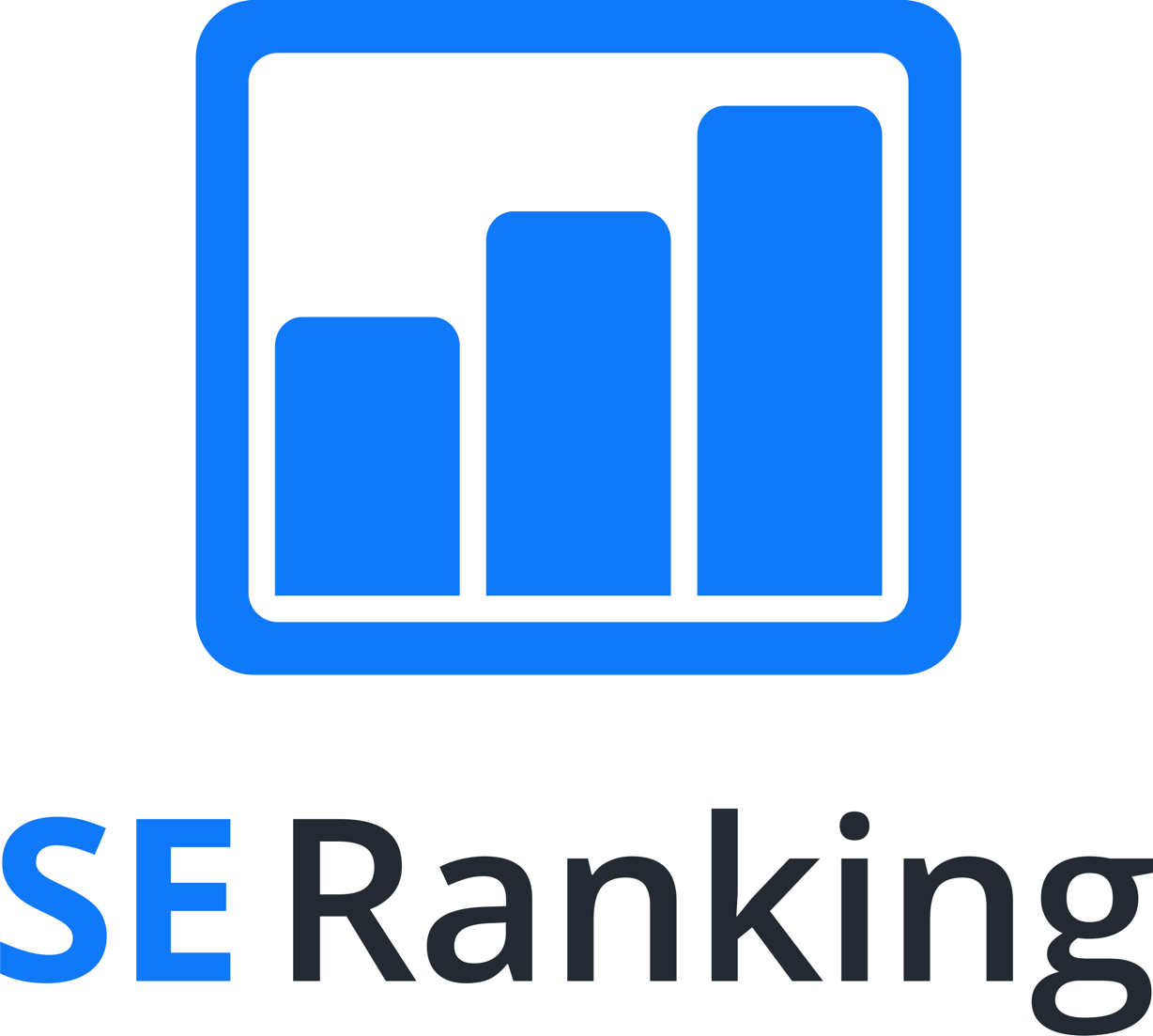Description

DeepCrawl

SERPtimizer
Comprehensive Overview: DeepCrawl vs SERPtimizer
DeepCrawl and SERPtimizer are both tools within the digital marketing and search engine optimization (SEO) landscape, serving slightly different primary functions and target markets. Here's a comprehensive overview of each tool along with a comparison:
DeepCrawl
a) Primary Functions and Target Markets:
- Primary Functions: DeepCrawl is primarily a web crawling and site auditing tool. It is designed to help businesses improve their website's SEO by providing insights into technical issues, site architecture, and overall site health. It offers features such as complete website health checks, in-depth technical SEO audits, monitoring changes over time, custom extractions, and JavaScript rendering analysis.
- Target Markets: DeepCrawl targets enterprises, SEO agencies, marketers, and large businesses that require in-depth and frequent analysis of large websites.
b) Market Share and User Base:
- DeepCrawl is a well-known player in the SEO tool market, particularly favored by large organizations with complex websites that need comprehensive audits. Its market share is strengthened by its reputation as an enterprise-level solution, but it is not as broadly used as some overarching SEO platforms like SEMrush or Ahrefs.
c) Key Differentiating Factors:
- Enterprise-Level Features: DeepCrawl offers features that are particularly appealing to large companies, such as detailed API integrations, extensive custom reports, and the ability to handle large-scale websites with millions of pages.
- Technical SEO Focus: It places a strong emphasis on technical SEO, offering deep insights and custom analysis options.
SERPtimizer
a) Primary Functions and Target Markets:
- Primary Functions: SERPtimizer is an SEO tool designed to assist with various aspects of search engine optimization, including on-page SEO analysis, keyword tracking, backlink analysis, and competitor analysis. It provides actionable insights to improve search rankings and traffic.
- Target Markets: SERPtimizer targets small to medium-sized businesses (SMBs), individual website owners, and SEO professionals who need an efficient tool to assist with optimizing website visibility and performance.
b) Market Share and User Base:
- SERPtimizer has a more niche user base compared to larger competitors, focusing on small businesses and individuals who need affordable yet comprehensive SEO solutions. Its market presence is more modest relative to highly established platforms, but it serves its target market well by offering a cost-effective solution.
c) Key Differentiating Factors:
- Affordability and Accessibility: SERPtimizer is typically more affordable and accessible to small businesses and individual users compared to enterprise-level tools like DeepCrawl, making it a more attractive option for these audiences.
- Ease of Use: It is designed to be user-friendly and straightforward, which appeals to users who may not have extensive technical SEO expertise.
Comparison
-
Target Audience:
- DeepCrawl is designed for larger organizations and enterprises that need to conduct extensive technical SEO audits regularly.
- SERPtimizer focuses on small to medium-sized businesses and individual website owners who need an all-in-one SEO tool at a lower cost.
-
Functionality:
- DeepCrawl excels in technical SEO and site auditing with a focus on enterprise-level capabilities and custom analyses.
- SERPtimizer offers a mix of on-page and off-page SEO tools, keyword tracking, and competitive analysis at a more basic level suitable for smaller scale needs.
-
Market Presence:
- DeepCrawl has a stronger presence in regions and industries where deep technical SEO analysis is critical, but it serves a more niche segment.
- SERPtimizer, while less visible overall in the market, claims a stake by providing accessible SEO features to smaller entities.
Understanding the unique benefits and target user scenarios of each tool can help businesses select the right solution based on their SEO needs, technical requirements, and budget constraints.
Contact Info

Year founded :
2023
Not Available
Not Available
Indonesia
http://www.linkedin.com/company/deepcrawl.id

Year founded :
Not Available
Not Available
Not Available
Not Available
Not Available
Feature Similarity Breakdown: DeepCrawl, SERPtimizer
When comparing DeepCrawl and SERPtimizer, both tools offer features designed to enhance SEO performance and provide website analysis. Here's a breakdown of their core features, user interface comparisons, and unique features:
a) Core Features in Common
-
Site Auditing: Both DeepCrawl and SERPtimizer provide comprehensive site audits, allowing users to identify SEO issues like broken links, duplicate content, and other factors affecting site performance.
-
SEO Reporting: They offer detailed reports that help users understand the health of their websites, track SEO improvements, and measure ROI.
-
Keyword Analysis: Both tools include keyword research capabilities, enabling users to identify high-performing keywords and optimize content accordingly.
-
Competitor Analysis: Both platforms allow users to analyze competitors’ web strategies, helping in identifying gaps and opportunities for improvement.
-
Crawl Customization: Users can customize the crawling process to focus on specific parts of their websites.
-
Integration with Third-Party Tools: Both DeepCrawl and SERPtimizer offer integration with platforms like Google Analytics and Google Search Console to provide richer data insights.
b) User Interface Comparison
-
DeepCrawl: Known for its detailed and technical interface, DeepCrawl's UI is more suited for advanced users and SEO professionals. The dashboards are highly customizable and provide granular data, which can be overwhelming for beginners but is invaluable for in-depth analysis.
-
SERPtimizer: Typically offers a more straightforward and user-friendly interface. It is designed to be accessible to both beginners and seasoned SEO experts, featuring intuitive navigation and clear visualizations that make it easy to understand data insights quickly.
c) Unique Features
-
DeepCrawl:
- JavaScript Rendering: Offers advanced JavaScript rendering options, which can be crucial for websites heavily reliant on JavaScript.
- Technical SEO Focus: DeepCrawl excels in providing technical SEO insights and is equipped to handle enterprise-level websites, with features catered to large-scale technical auditing.
- API Access: Offers robust API access for integrating DeepCrawl data into other business systems or creating custom applications.
-
SERPtimizer:
- SERP Analysis: Provides more refined capabilities for analyzing SERP features and understanding ranking dynamics across different search engines.
- On-Page Optimization Recommendations: Offers detailed suggestions for optimizing individual page elements, which can be particularly helpful for content creators and marketers.
- Ease of Use: Built with usability in mind, making it an excellent choice for users who may not be as familiar with technical SEO but still require solid performance insights.
Both tools have their strengths, with DeepCrawl being more suitable for users with a technical background in SEO and SERPtimizer being an accessible option for a broader audience, including marketers looking for actionable insights without getting too technical.
Features

Not Available

Not Available
Best Fit Use Cases: DeepCrawl, SERPtimizer
DeepCrawl and SERPtimizer are both tools used in the realm of search engine optimization (SEO), but they serve different purposes and cater to distinct needs. Below is a guideline on their best fit use cases and how they cater to different business environments.
DeepCrawl
a) Best Choice for DeepCrawl:
Types of Businesses or Projects:
-
Large Enterprises or E-commerce Websites: DeepCrawl is ideal for large-scale websites with complex structures. These could include online retailers, media companies, or any business with a significant online presence that requires detailed and comprehensive site audits for performance optimization.
-
SEO Agencies and Professionals: Agencies managing SEO for multiple clients with diverse and complex site architectures will find DeepCrawl's features robust for identifying and solving technical SEO issues.
-
Projects with a Focus on Technical SEO: For businesses prioritizing technical aspects of SEO such as crawlability, indexing, and site architecture, DeepCrawl provides the advanced tools necessary to ensure that websites adhere to best practices.
-
Web Development Teams: For teams that need an understanding of how site changes impact SEO, DeepCrawl delivers insights that can inform development decisions to enhance site performance and search visibility.
Industry Vertical and Company Size:
- Industries: E-commerce, publishing, finance, and any sector with large, dynamic websites.
- Company Size: Large to enterprise-level companies or agencies that require in-depth analysis of SEO structures and data.
SERPtimizer
b) Preferred Scenarios for SERPtimizer:
Types of Businesses or Projects:
-
Small to Medium Businesses (SMBs): SERPtimizer is a more straightforward tool suitable for smaller companies that need easy-to-use SEO solutions for improving their search rankings without the complexity of enterprise-level tools.
-
Digital Marketing Teams: Ideal for marketing teams that require a user-friendly interface to manage day-to-day SEO tasks such as keyword analysis, backlink tracking, and rank monitoring.
-
Startups and Individual Entrepreneurs: Those who need cost-effective SEO solutions to manage and enhance their online presence with limited resources.
-
Content-focused Projects: Projects where the primary goal is content optimization for better visibility in search results can benefit from SERPtimizer’s streamlined functionality.
Industry Vertical and Company Size:
- Industries: Local businesses, startups, content creators, service industries.
- Company Size: Small to mid-sized businesses that require affordable and efficient SEO tools to drive organic growth.
How They Cater to Different Industry Verticals or Company Sizes:
-
DeepCrawl's Strengths: Its ability to handle complex site audits and deliver detailed insights makes it suitable for industries with intricate websites and larger company sizes. It’s designed to meet the needs of those who need extensive data analysis and deep technical SEO audits.
-
SERPtimizer's Strengths: It caters well to industries or companies focusing on getting started with SEO, needing a budget-friendly solution with intuitive features for managing SEO basics. It’s well-suited for smaller scale operations or less complex environments where the focus is merely on improving visibility and rankings without extensive technical analyses.
Both tools offer valuable solutions but are crafted to serve different requirements based on the scale and depth of SEO needs.
Pricing

Pricing Not Available

Pricing Not Available
Metrics History
Metrics History
Comparing teamSize across companies
Conclusion & Final Verdict: DeepCrawl vs SERPtimizer
Conclusion and Final Verdict
When comparing DeepCrawl and SERPtimizer, the decision ultimately depends on the specific needs and priorities of the user, as each tool offers unique strengths. Below is a breakdown of the overall value, pros and cons, and recommendations for deciding between these two SEO tools.
a) Best Overall Value
DeepCrawl offers the best overall value for enterprises and large businesses with complex websites that require in-depth technical SEO insights and comprehensive site audits. Its robust crawling capabilities and extensive reporting features make it particularly valuable for those needing to maintain large websites with frequent updates. On the other hand, SERPtimizer provides significant value for small to medium-sized businesses and individual marketers who are looking for an intuitive and affordable solution for on-page and off-page SEO optimizations.
b) Pros and Cons
DeepCrawl
- Pros:
- Extensive and customizable crawling options, capable of handling large websites.
- Strong technical SEO capabilities, including advanced site auditing and error detection.
- Comprehensive reporting, making it easy to track SEO performance over time.
- Excellent integration with other SEO tools and platforms.
- Cons:
- Higher cost, which might not be justified for smaller businesses with limited budgets.
- Steeper learning curve due to a wide array of features and customization options.
- Primarily focused on technical SEO, which may not address all content-specific SEO needs.
SERPtimizer
- Pros:
- User-friendly interface, ideal for beginners or those with limited technical expertise.
- Cost-effective, with flexible pricing plans catering to small and medium enterprises.
- Useful features for both on-page and off-page SEO, including keyword tracking and SERP analysis.
- Quick and easy setup, allowing users to start optimizing immediately.
- Cons:
- Limited depth in technical SEO compared to more specialized tools.
- May not fully support very large websites or sites with complex structures.
- Some users may find the breadth of features insufficient for comprehensive SEO tracking and reporting.
c) Specific Recommendations
For users deciding between DeepCrawl and SERPtimizer, consider the following recommendations:
-
Choose DeepCrawl if:
- You are managing a large or complex website and need advanced technical SEO capabilities.
- Your organization has the budget to invest in a premium SEO tool.
- You require integration with other enterprise-level tools and platforms.
- You have a dedicated SEO team capable of utilizing the comprehensive features effectively.
-
Choose SERPtimizer if:
- You are a small to medium-sized business owner or an individual SEO practitioner.
- Budget constraints require a more economical solution.
- You prefer a tool that is quick to learn and easy to use, even for those new to SEO.
- Your focus is more on basic on-page and off-page SEO optimizations rather than just technical audits.
In conclusion, both DeepCrawl and SERPtimizer have their merits and cater to distinct market needs. The decision should align with the user's specific SEO goals, website complexity, and budgetary considerations.
Add to compare
Add similar companies



